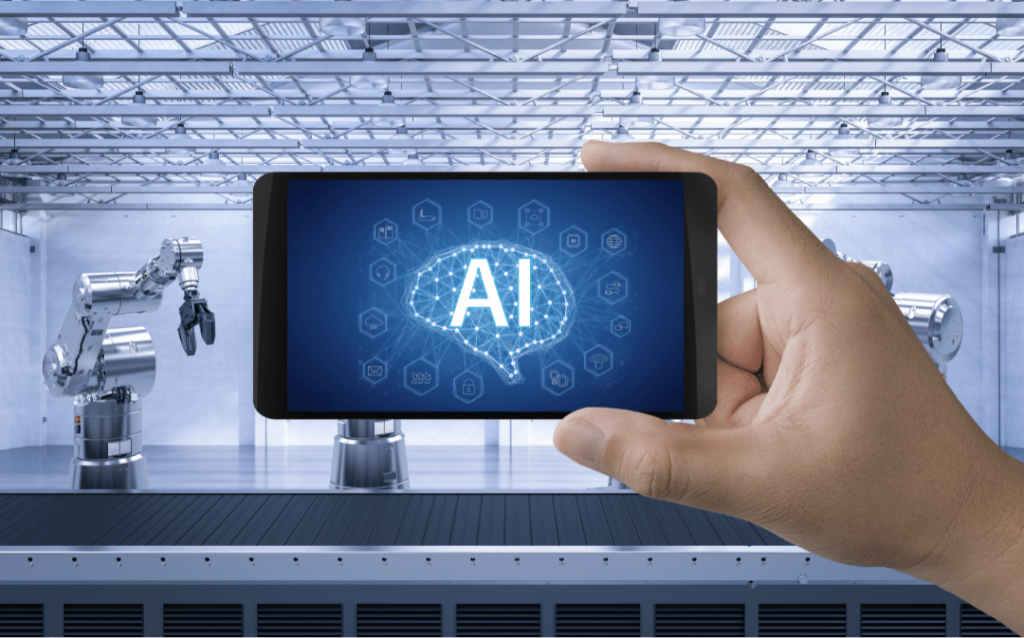Career Trends: September 25, 2022
Curated by the Knowledge Team of ICS Career GPS

Content Credit:
- Article by Drew Robb, published on datamation.com. Original article link.
Artificial intelligence (AI) is a wide-ranging branch of computer science in which smart machines are built to perform tasks that typically require human intelligence. In simpler terms, it is making computers think like humans. The term is most frequently used to describe machines that mimic cognitive functions such as learning, communication, and problem-solving.
Artificial intelligence (AI) is impacting jobs across all strata of business and IT.
AI is being incorporated into customer relationship management (CRM), enterprise resource planning (ERP), business intelligence (BI), analytics, cybersecurity, marketing, sales, management, and more.
Here are five major trends in AI jobs the market is seeing:
1. AI Shifts All Roles
- AI is shifting all other roles, or at least a great many of them.
- For example, cloud application optimisation, where AI is allowing DevOps engineers to focus on development and testing and not as much on the size of workloads.
- AI can find the right size, or the service-level objectives, of an application, where a DevOps engineer or team might just request a large footprint that will hold the app, without worrying about over-provisioning and overspending.
- In this case, AI and its branch technology machine learning (ML) can suggest with high accuracy the size of the workload (CPU, memory, replicas, etc.) and allow the DevOps team to build, test, and send the workload to the site reliability engineering (SRE) team.
2. Site Reliability Engineering Roles
- AI and ML are bringing about big changes in SRE roles.
- By using ML to find an optimal set of performance settings in the production phase, the SRE team does not have to take time away from preparing apps for production to worry about tuning them.
- Since the number of permutations of settings for an app or microservice with just three parameters (CPU, memory, replicas) is in the trillions, it requires a system that can operate at machine speed to do the testing and experiments necessary to actually find the optimal combination of values for those parameters.
3. Cybersecurity and AI
- Cybersecurity engineers scored highest in salary growth in 2020 according to the “Tech Salary Report” from jobs website Dice.
- The report highlights skills like cloud, AI, ML, and cybersecurity as being in high demand.
- Roles are evolving that harness AI in tandem with standard cybersecurity tools.
- “The widespread adoption of remote work led to increased vulnerabilities, providing hackers with unprecedented opportunities to attack and breach defenses,” said Art Zeile, CEO of DHI Group.
- In response, the need for skilled technologists to identify and plug these security holes saw cybersecurity analysts enjoy the largest growth in salary of any occupation.
4. AI in Manufacturing
- Many different verticals are big on AI, and manufacturing is moving to the forefront.
- An MIT survey revealed that about 60% of manufacturers are already using AI. The two most common use cases for AI in manufacturing are maintenance and quality control.
- AI is used to process data coming in from sensors to monitor factors like oil levels, debris on filters, equipment health, performance, vibration, emissions, and more.
- AI then points maintenance personnel towards the equipment and components that need attention.
- This saves time and money.
- “Manufacturing data is a good fit for AI/machine learning,” said Cem Dilmegani, founder of AI Multiple, an AI analyst firm. “Manufacturing is full of analytical data, which is easier for machines to analyse.”
5. AI in Robotics
- Robotics is another hot market making heavy use of AI.
- Jobs will be plentiful in areas such as robotic process automation (RPA).
- When integrated with AI, RBA helps companies deal with high-volume, repeatable tasks far more efficiently.
- Yes, some tasks will be lost to robots.
- But plenty of people will be needed to service the robots, harness AI to increase performance, reduce robotic errors, and write software that can incorporate AI, RBA, and plant systems.
…
Have you checked out yesterday’s blog yet?
Steps you can follow to keep conflicts healthy
(Disclaimer: The opinions expressed in the article mentioned above are those of the author(s). They do not purport to reflect the opinions or views of ICS Career GPS or its staff.)




One Reply to “Top Trends in Artificial Intelligence (AI) Jobs”